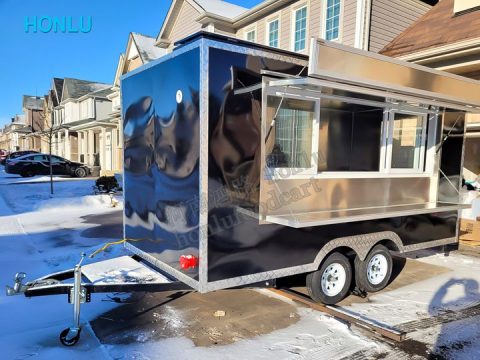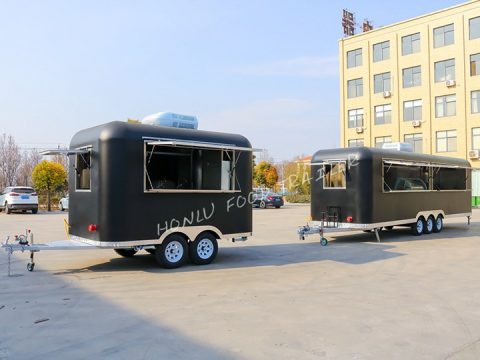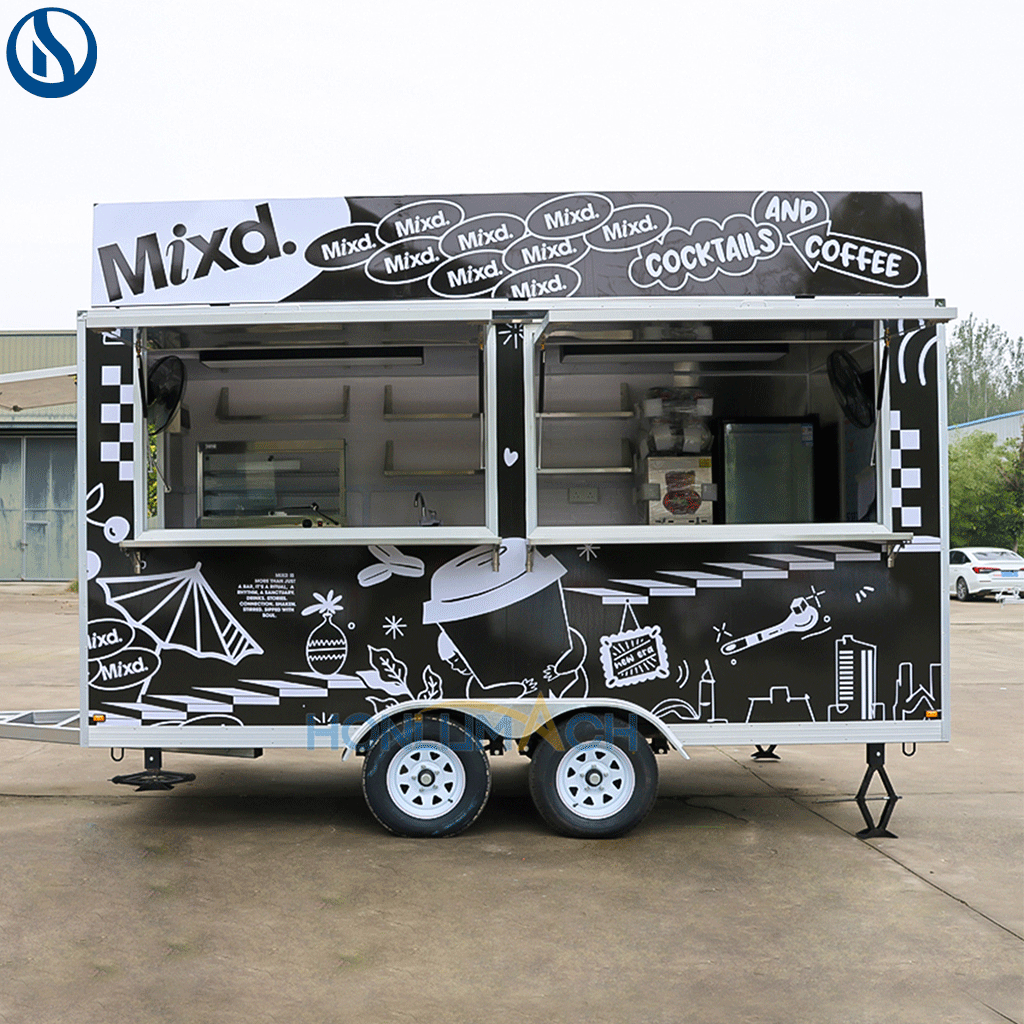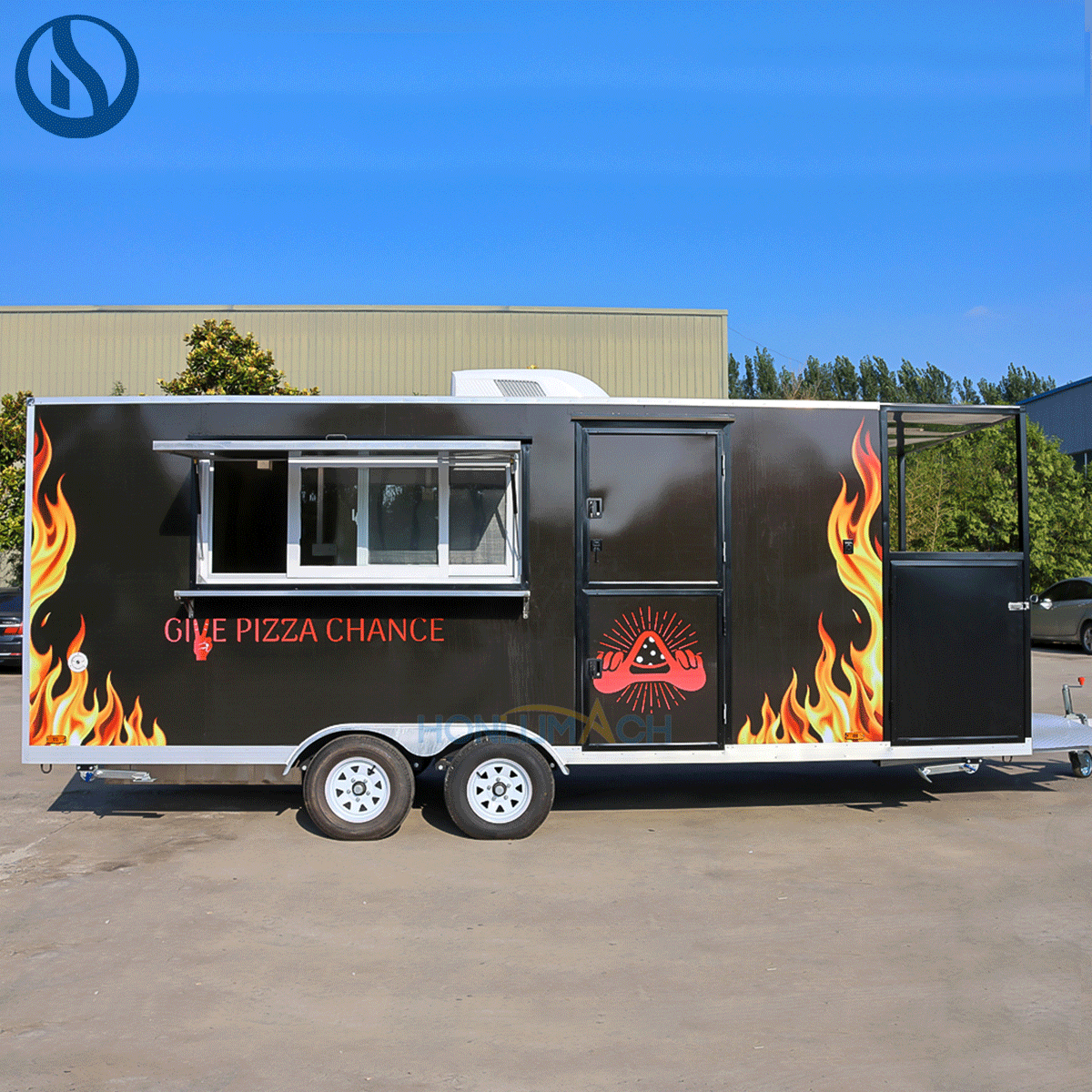introduction
Many entrepreneurs are considering whether to open a restaurant or choose a more flexible and mobile food truck. So, which business is more suitable for you, a food truck or a restaurant? This article will help you make a choice based on their respective characteristics.
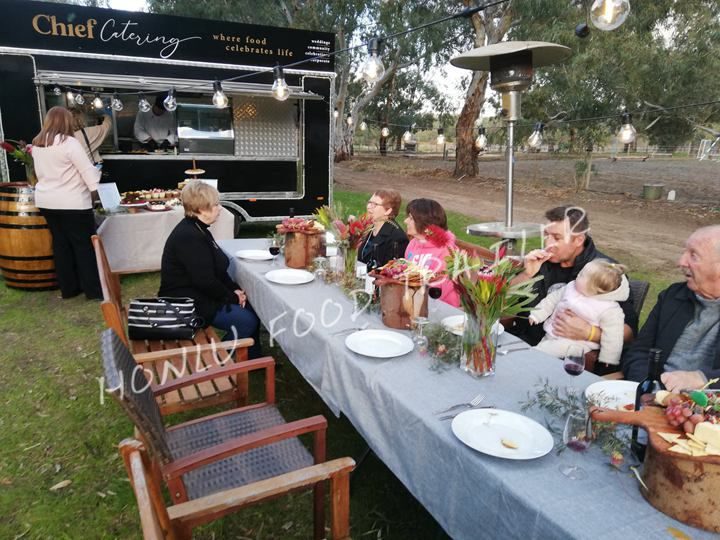
What are the advantages of a food truck?
Owning a food truck offers several advantages compared to traditional restaurants, including:
Low Startup Costs
It takes less startup capital to open a food truck than it does to open a restaurant. You don’t need to pay high rent or renovation costs, nor do you need to incur long-term property costs for a fixed site. As a result, food trucks are ideal for many entrepreneurs, especially those on a budget.
Flexibility and Mobility
One of the biggest advantages of food trucks is flexibility. You can adjust the location of your business as needed, attend local festivals, markets, or corporate events, and even choose the most appropriate location for your business as the seasons change. Additionally, the mobility of a food truck allows you to reach more potential customers.
Lower Operating Costs
Food trucks usually don’t have to pay the high costs of utilities, maintenance, and other costs that restaurants do. The number of employees is also relatively small, making operating costs naturally lower. Food trucks are an efficient and cost-controlled option for small restaurant entrepreneurs.
Rapid Response to Market Demand
When a food truck is operating in a particular location, it can quickly adjust its menu, prices, marketing methods, etc. to meet market demand. For example, if customers in a certain area have a strong demand for a particular food specialty, you can make timely adjustments based on feedback, a flexibility that is difficult for traditional restaurants to achieve.
Direct Customer Interaction
Operating a food truck allows for face-to-face interaction with customers, enabling you to receive immediate feedback, build relationships, and foster brand loyalty.
Brand Awareness and Marketing
Food trucks, with their often eye-catching designs, act as mobile billboards, increasing brand visibility and attracting new customers. Social media can be leveraged effectively to promote your location and foster meaningful engagement with customers.
Essentially, food trucks provide an easier entry point into the food industry, allowing aspiring entrepreneurs to test their culinary skills, build their brand, and expand their business with less financial risk than opening a traditional restaurant.
What Are the Food Trailer Challenges?
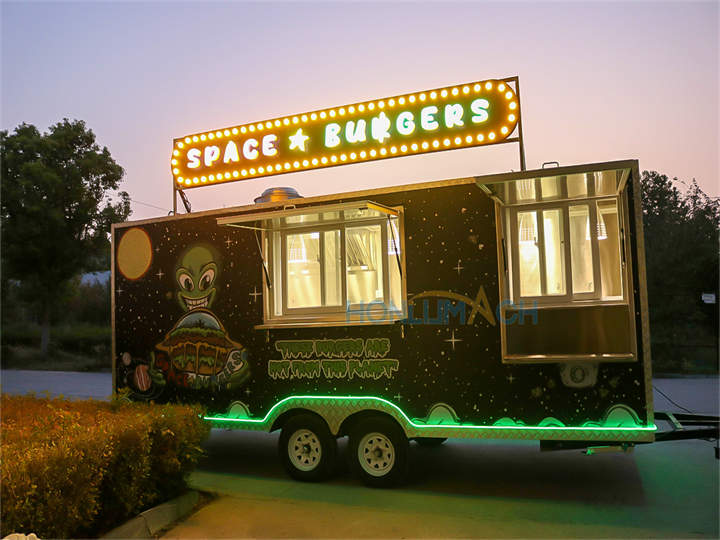
1. Restricted Space
Because food trucks have limited space, the variety of food and the flow of operations may be somewhat restricted. This means you need to carefully design your menu to avoid dishes that are too complex or require a lot of equipment. You’ll also need to consider how to maximize the use of limited space, such as with smart kitchen equipment and modular designs.
2. Dependence on Weather and Events
Because food trucks rely on outdoor events and mobile business locations, it can be affected by weather and seasonal factors. Rain, cold weather, or unpopular event locations may affect patronage and therefore revenue.
3. Legal and Permitting Issues
Many cities have strict regulations and requirements for food trucks, including parking permits, health inspections, and business licenses. Therefore, before opening a food truck, make sure you understand local regulations and requirements to avoid legal issues.
Overcoming these challenges requires careful planning, adaptability, and a strong understanding of the mobile food industry. Trailer King Builders notes that managing the logistics of running a mobile food truck, such as staying up to date with local regulations, can become more challenging as your business grows.
What are the advantages of a restaurant?
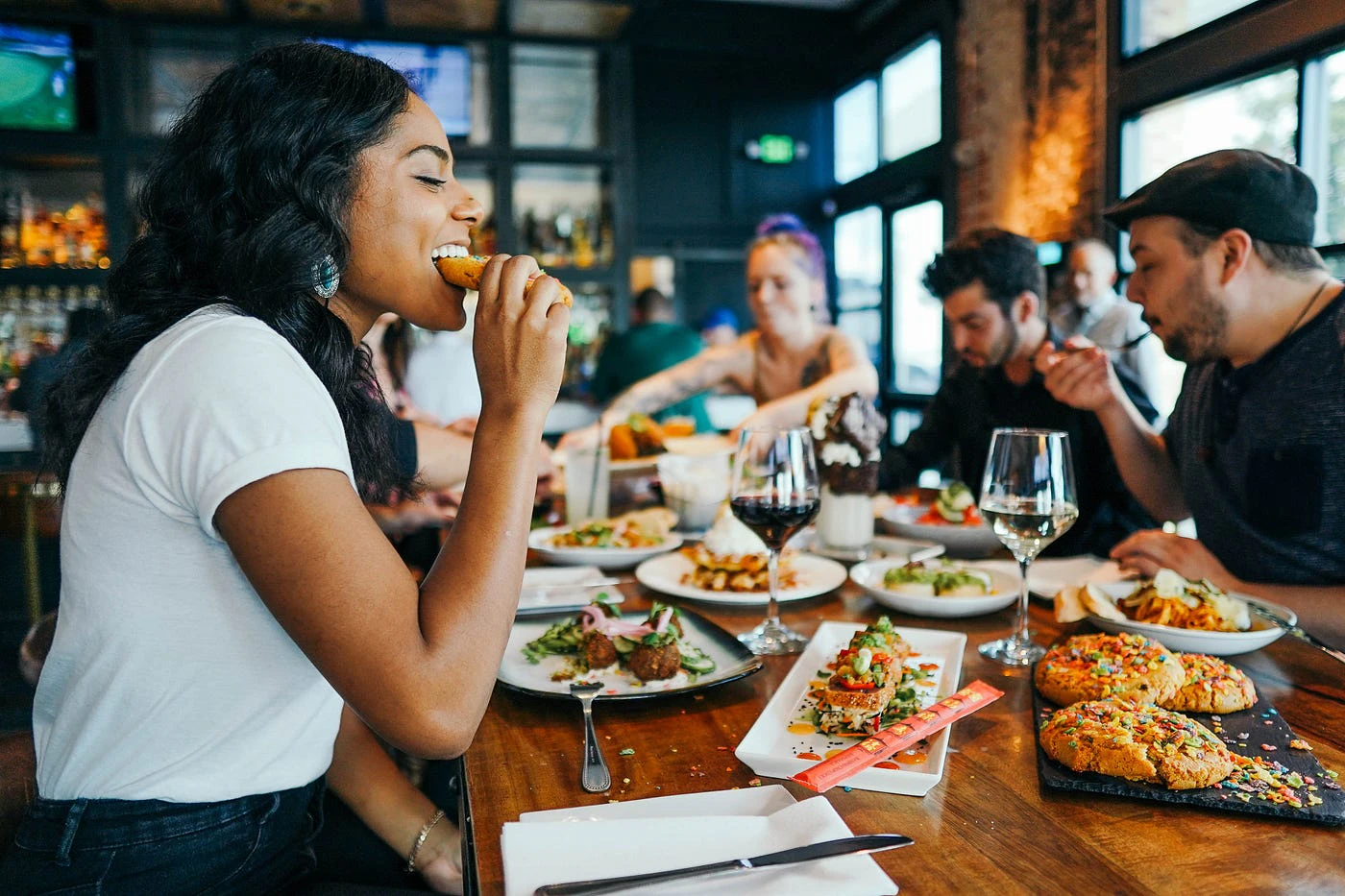
Stable customer base
A restaurant has a fixed place of business and a regular flow of customers, which means that it can rely on a stable business with a long-term customer base. For restaurants that offer high quality food and service, repeat business tends to be higher, leading to predictable revenue.
More room to maneuver
Restaurants have more space, which provides more room to maneuver in the kitchen and dining area. You can offer a wider variety of dishes and provide a richer customer experience. In addition, restaurants have better facilities to support large-scale catering services.
Brand Building
Restaurants typically have a greater opportunity to build a brand image. Fixed locations allow customers to familiarize themselves with your restaurant and build a strong brand presence through well-designed environments, service, and menus.
More staff and resources
Restaurants are able to employ more staff with a clear division of labor. This allows you to provide a more efficient and professional service that meets the needs of more customers. In a restaurant, you can also utilize more advanced kitchen equipment to increase efficiency.
What are the challenges of a restaurant?
High Startup Costs
Opening a restaurant requires a large investment, including a range of expenses such as site rental, renovation, kitchen equipment, and staff recruitment. For entrepreneurs with limited budgets, the startup cost of a restaurant can be a huge obstacle.
Higher Operating Costs
Restaurants need to pay high operating costs such as utilities and property management fees, and with a larger number of employees, expenses such as salaries and benefits are also higher. This means that restaurants are riskier to operate, especially if revenues are unstable.
Restricted Market Reach
The customer base of a restaurant is mainly from the neighborhood or the group of customers who frequent the restaurant. If the restaurant is located in a less busy area, it may be difficult to attract enough customers. Food trucks, on the other hand, can move to different locations and reach more potential customers.
Food trailer vs. restaurants: how to choose?
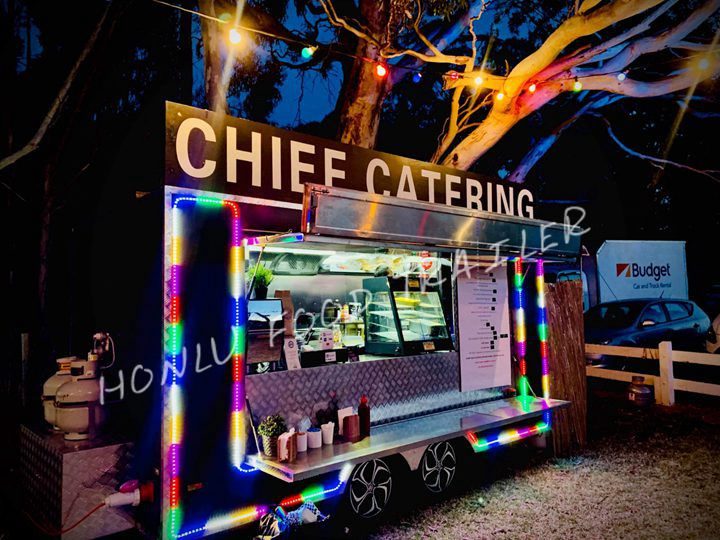
4 Key to consider:
- Location
Food trailers are mobile and can be found in a variety of locations, while restaurants are typically fixed in one location.
- Cost
Food trailers generally have lower operating costs than restaurants, which can result in lower prices for food.
- Atmosphere
Restaurants often have a more formal atmosphere, while food trailers tend to be more casual.
- Menu
Restaurants typically have more extensive menus than food trailers.
Conclusion
Many successful restaurant entrepreneurs start with a food truck and gain experience and customers before opening a restaurant; others open a restaurant straight away and are successful. The key is to make a choice based on your money, ability, and goals, and to work hard and passionately for it.
Keep in mind:
No matter which model you choose, providing quality food and service is always fundamental to success. Good luck in finding your own “paradise” in restaurant entrepreneurship!
FAQs
Is it better to open a restaurant or a food truck?
Is a food truck or a restaurant more profitable? At first, a food truck will tend to be more profitable. With lower startup and overhead costs to cover, a food truck’s returns can be great, and your profits can exceed a restaurant percentage-wise in the future.
What type of food trucks make the most money?
Food trucks with a focus on barbecue, burgers, tacos, and grilled cheese tend to be among the most profitable, according to Otter POS and Toast. These items are popular, offer high profit margins, and are relatively easy to prepare, making them attractive to food truck operators.
What food sells best at food trucks?
Some of the most popular food items sold by food trucks include:
- Burgers
A classic and customizable option that is popular across all demographics. - Tacos
A versatile food that can be filled with endless options, making them a popular choice for food trucks. - Noodles
A popular street food option that can be prepared in various styles, such as Thai, Chinese, Japanese, Korean, and Vietnamese. - Loaded Fries
A popular side dish that can be customized with various toppings, such as cheese, bacon, and jalapenos. - Chicken and Waffles
A sweet and savory dish that is becoming increasingly popular among food trucks.
Reference
Otte(2024): “The Top 10 Most Profitable Food Truck Items 2024”.Otter POS
https://www.tryotter.com/blog/industry/top-10-most-profitable-food-truck-items-2024
Toast(2025): “6 Most Profitable Food Truck Menu Items for 2025”. Toast
https://pos.toasttab.com/blog/on-the-line/most-profitable-food-truck-foods


